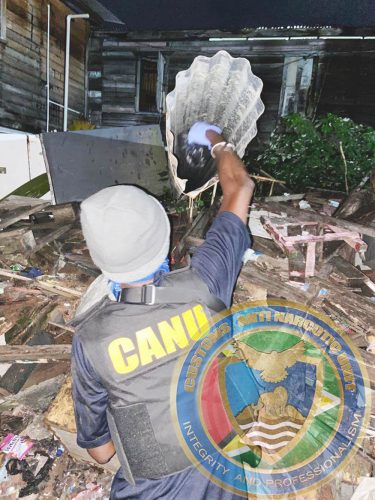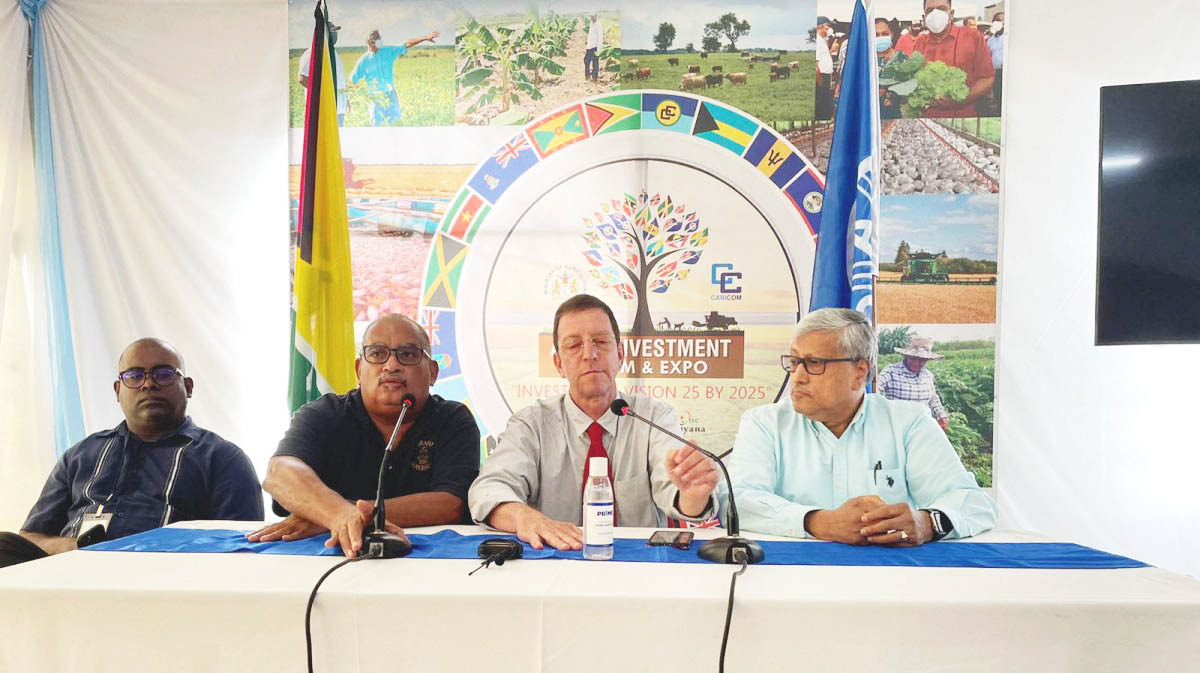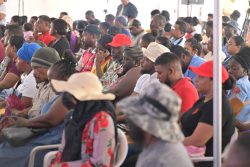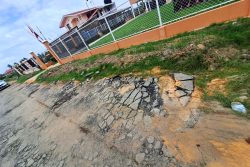Demerara Distillers Limited (DDL) and the government on Friday signed an agreement that would see the establishment of a US$15m milk plant following positive results from a feasibility study the company had conducted.
“We have been working on the feasibility and we have come to a conclusion that it was feasible. We presented it and are working on a specific location and so on,” Chairman of DDL Komal Samaroo told Stabroek News yesterday.
“The government has approved it and we are looking at options, because there are a couple, for its location,” he added, pointing out that the agreement was signed last week.

Samaroo said that there is a possibility that the plant could be located on the Linden-Soesdyke Highway but there has been nothing definitive as yet.
In May of this year, Rami Ofer who is Project Manager of the company’s Israeli partner, LR Group’s Livestock had informed that they were in search of land to forge ahead with their plan to house the proposed TOPCO milk plant project for commercial scale production of fresh cow’s milk.
Ofer had explained that the company needed some 600 acres of land to set up its industrial-style farm and that it will be used to house the buildings for some 500 heifers which will be imported, an administration building, solar panel power grid and the farm.
The DDL subsidiary, Tropical Orchard Products Company Limited (TOPCO), last year signed a Memorandum of Understanding with the group to commence feasibility and technical studies.
Since the signing of the MoU a year ago, the company said it has been engaged in planning and laying the foundation work through consultation and meeting with stakeholders to have a solid plan for operations in place.
In April last year, the company had also said it would be importing milk powder for its pasteurised milk processing plant until Guyana has an “organized dairy sector.”
And following a presentation at the Agri-Investment Forum and Expo at the Arthur Chung Conference Centre last month, DDL’s Government Affairs Consultant, Wesley Kirton, explained that they had been in conversation with the Guyana Lands and Surveys Commission, and the Ministry of Agriculture to find suitable lands. And although they had not yet settled on a location, he said they have been scoping out potential areas.
“We have been in touch and visited some lands already…We have found one area that is Moblissa [along the Soesdyke-Linden Highway]…,” Kirton disclosed. However, with the lands still being underdeveloped, he told the media briefing that they are in discussions with Guyana Water Inc and Guyana Power and Light for utilities needs and the Region 10 Council on the possibility of sourcing labour should they settle on those lands along the highway.
Ofer during the presentation in May pointed out that the animals will not be on a free-range farm but rather in a confined environment equipped with temperature control for them to thrive in a comfortable environment. This approach, he explained, has been utilized globally in dairy production to ensure the energy of the animal is spent on milk production.
He added that the farming shed will be equipped with irrigation and wind blowing systems which will act as a cooling mechanism for the animals should the temperature be too high.
Additionally, the company has not settled on the breed of cattle they will be using for the project but during the presentation explained that they are looking at different types which are suitable for dairy production.
“So there are many options but we just want to make sure the breed we are going to use is going to be highly productive because we want to maximise production and minimise space,” Ofer explained.
Moreover, he acknowledged that they have not worked out the cost at which the fresh milk will be retailed but stated that the milk once pasteurized will have a shelf life of six months.
The initiative, DDL said, is one that falls in line with CARICOM’s commitment to reducing its food importation bill by 25% by 2025. The Chairman also stated that it is their vision to utilise Guyana’s production capabilities to feed the region.
Noting that their approach to the dairy sector is similar to the TOPCO line of juices with their production facilities and local market distribution network, Samaroo said they will exploit their knowledge of the markets gleaned from the exportation of their products, to have the dairy products available in the countries across the region.
Ofer further explained that in a bid to prevent manure pollution, they will be collecting the manure to treat it and spread it along their fields to improve the production of the forage crops, which will be used to feed the animals.
“The forage will be harvested and stored and brought to the animals’ table so that they don’t have to go out and waste any energy searching for food. In this way we can produce more milk from the smaller unit of production,” he explained.
He added that apart from creating approximately 70 full-time employment opportunities, they will also be engaged in retailing calves and older cattle to local farmers. This initiative, he added, can create a spin-off effect and develop the beef production industry.
“This farm that we are establishing will also involve local communities and local farmers. We will establish contract farming of food supply in certain quantities and by having male cows born on site… they will be sold to the local farmers to extend their beef cattle local capacity and capability.”










